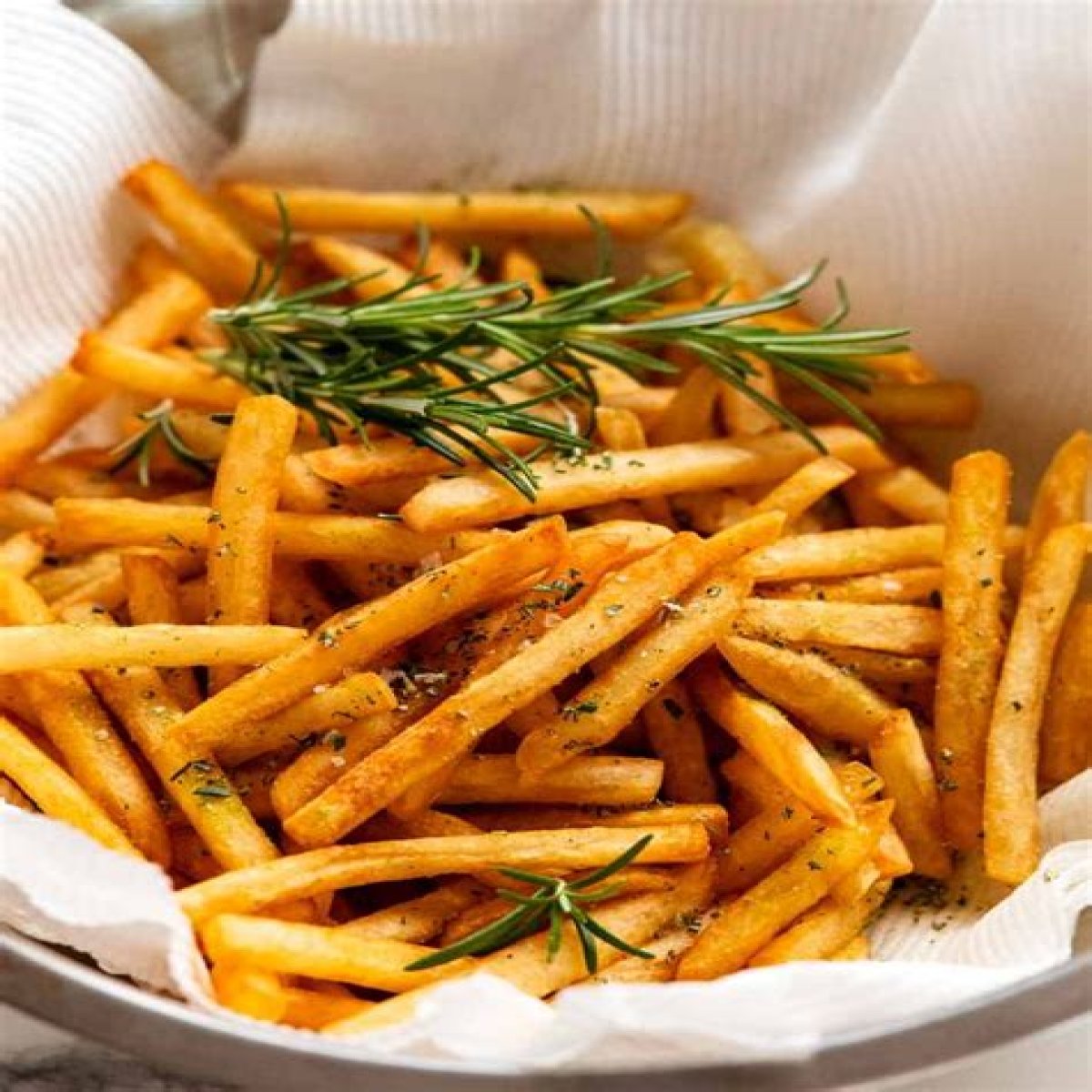When it comes to crafting the ultimate French fries, the choice of potatoes is paramount. The right kind of potatoes can make all the difference between soggy, limp fries and perfectly crispy, golden-brown delights that everyone craves. French fries are a beloved staple in many cuisines around the world, and understanding what makes certain potatoes more suitable for frying can elevate your culinary skills and enhance the dining experience.
In this article, we’ll dive deep into the world of potatoes, answering the burning question: what are the best potatoes for French fries? Whether you're a home cook or a professional chef, knowing which varieties yield the best results is essential for achieving that perfect fry. We'll explore different potato types, their characteristics, and tips on how to prepare them for frying.
So, if you’re ready to take your French fry game to the next level, keep reading! You’ll discover not only the best potato types but also some valuable insights into preparation and cooking techniques that will help you serve up the most delicious fries imaginable.
What Are the Best Potatoes for French Fries?
French fries require specific characteristics in potatoes to achieve that much-desired crunch and flavor. Generally, the best potatoes for making fries are high-starch varieties that absorb oil while frying, leading to that crispy exterior and fluffy interior. Here are some of the top contenders:
- Russet Potatoes: Known for their high starch content, Russets are a favorite among fry enthusiasts.
- Idaho Potatoes: Similar to Russets, Idaho potatoes offer a great balance between starch and moisture.
- Yukon Gold Potatoes: These potatoes provide a buttery flavor and are perfect for a slightly different texture.
- Maris Piper: Highly regarded in the UK, they create a crisp fry with a fluffy inside.
Why Do Starch Levels Matter?
The starch content in potatoes plays a crucial role in determining the texture of the fries. High-starch potatoes, such as Russets, have a lower moisture content, which allows them to fry up crispy while maintaining a fluffy interior. Conversely, low-starch potatoes tend to retain more moisture, resulting in less crispy fries. Thus, understanding the science behind starch levels can help you make informed choices for your French fry recipes.
How Do Different Cooking Methods Affect Fry Quality?
The method you use to cook your fries can significantly impact the final product. Here are some popular cooking methods and how they affect the quality of your fries:
- Deep Frying: This method produces the crispiest fries, as the hot oil cooks them quickly, sealing in moisture.
- Oven Baking: A healthier alternative, but may not achieve the same level of crispiness unless done correctly.
- Air Frying: Offers a middle ground, using hot air circulation to create a crispy exterior with less oil.
What Preparation Tips Enhance Fry Quality?
Proper preparation of your potatoes is essential for achieving the best results. Here are some tips to consider before frying your potatoes:
- Soak the Potatoes: Soaking cut potatoes in cold water for at least 30 minutes can help remove excess starch, leading to crispier fries.
- Dry Thoroughly: After soaking, ensure the potatoes are completely dry before frying to prevent oil splatter.
- Cut Uniformly: Try to cut the fries into uniform sizes for even cooking.
- Double Frying: Fry the potatoes twice: once at a lower temperature to cook through, and then at a higher temperature for crispiness.
What Are Some Popular French Fry Styles?
There are several styles of French fries that you can experiment with, each offering a unique taste and texture. Some popular styles include:
- Classic French Fries: The traditional fry, often served with ketchup.
- Steak Fries: Thick-cut fries that are hearty and great for dipping.
- Curly Fries: Twisted and seasoned, offering a fun visual and flavor twist.
- Sweet Potato Fries: A healthier alternative, bringing a sweeter flavor profile to the table.
What Seasonings Pair Well with French Fries?
While fries can be delicious on their own, adding seasonings can elevate their flavor. Here are some popular seasoning options:
- Sea Salt: A classic choice that enhances the natural flavor of the potatoes.
- Garlic Powder: Adds a savory depth that complements the fry's texture.
- Paprika: For a smoky touch, paprika can introduce a unique flavor.
- Herbs: Fresh or dried herbs like rosemary or thyme can add an aromatic touch.
How Can You Store Leftover Fries?
If you find yourself with leftover fries, proper storage is key to maintaining their quality. Here are some tips:
- Cool Completely: Allow fries to cool completely before storing to prevent sogginess.
- Use Airtight Containers: Store fries in airtight containers to keep out moisture.
- Reheat in the Oven: For the best results, reheat leftover fries in an oven to restore their crispiness.
What Are the Best Potatoes for French Fries in Conclusion?
In summary, the best potatoes for French fries are high-starch varieties such as Russets, Idaho, and Yukon Gold. Each potato type offers a unique flavor and texture that can elevate your fries to new heights. Remember, proper preparation and cooking methods can significantly impact the quality of your fries, so be sure to experiment with different techniques to find your perfect fry.
Next time you decide to whip up a batch of French fries, keep in mind the insights shared in this article. By choosing the right potatoes and following the recommended preparation and cooking tips, you'll be well on your way to serving up the best French fries imaginable.
Exploring The World Of Davedadonlive: A Journey Through Creativity And ConnectionUnveiling The Life And Journey Of Rebecca Yarros: A Mormon PerspectiveUnderstanding 175 Pounds: A Comprehensive Guide
